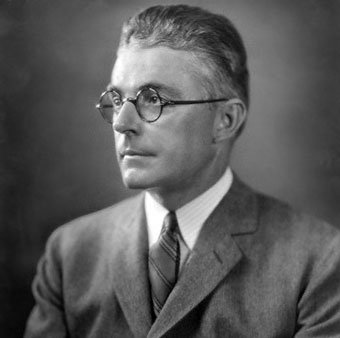
John Broadus Watson(1878-1958)
For this very interesting topic is good to know about their great authors and interpreters, for this opportunity we have John Broadus Watson (1878-1958), thanks to his study, experience and experiments makes known to psychology as a discipline within the field of science, I say this because next formulated and popularized the scientific theory of behaviorism, establishing it as a psychological school (behaviorist school), supported by great house of study, where they are renowned: Columbia University entitled Psychology as "The Behaviorist Views It" which was published as an article in Psychological Review the year 1913, we already have a historical contribution sombre the pleasant and conscious about psychology. Another advance inside this discipline is the observation and experiments to give to know, great contributions, grace to that Watson made an investigation, to give to know the role that plays the animal behavior, considering several species, also included the Homo sapiens, with the object of the meaning of the upbringing of neonates, which are the essence of the children.
Within the experimental and observation within research in this field, it is good to know that we worked under another paradigm or hypothesis to answer established questions, so that the classical conditioning as the operant conditioning, also addresses the Instrumental, which is part of behaviorism, On the other hand, continuing with the advances of this great author, thanks to the experimental observation he highlighted, in the psychic development of a white rat, in correlation with the growth of its nervous system, is a starting point of a great advance to apply within the physiognomy of the human being.
Remember that everything is going to focus important link that is learning, is where it enters that Watson helped define the study of behavior and psychology as a science, its experience and essence is conditioned through observable and measurable behavior, not everything ends at this point, I try to understand the essence of fear, also the creation of a connection between a new stimulus and an existing reflex, it is something already learned that in turn is unlearned by something new, but stimulated and conditioned, where philosophy has the participation of the environment as this influences learning.